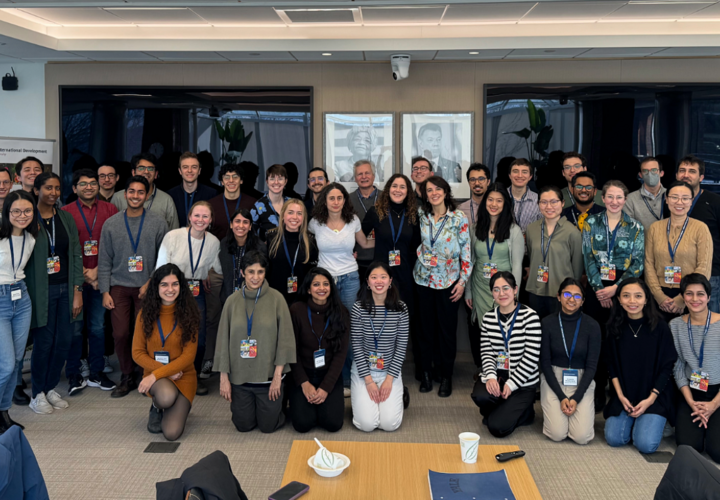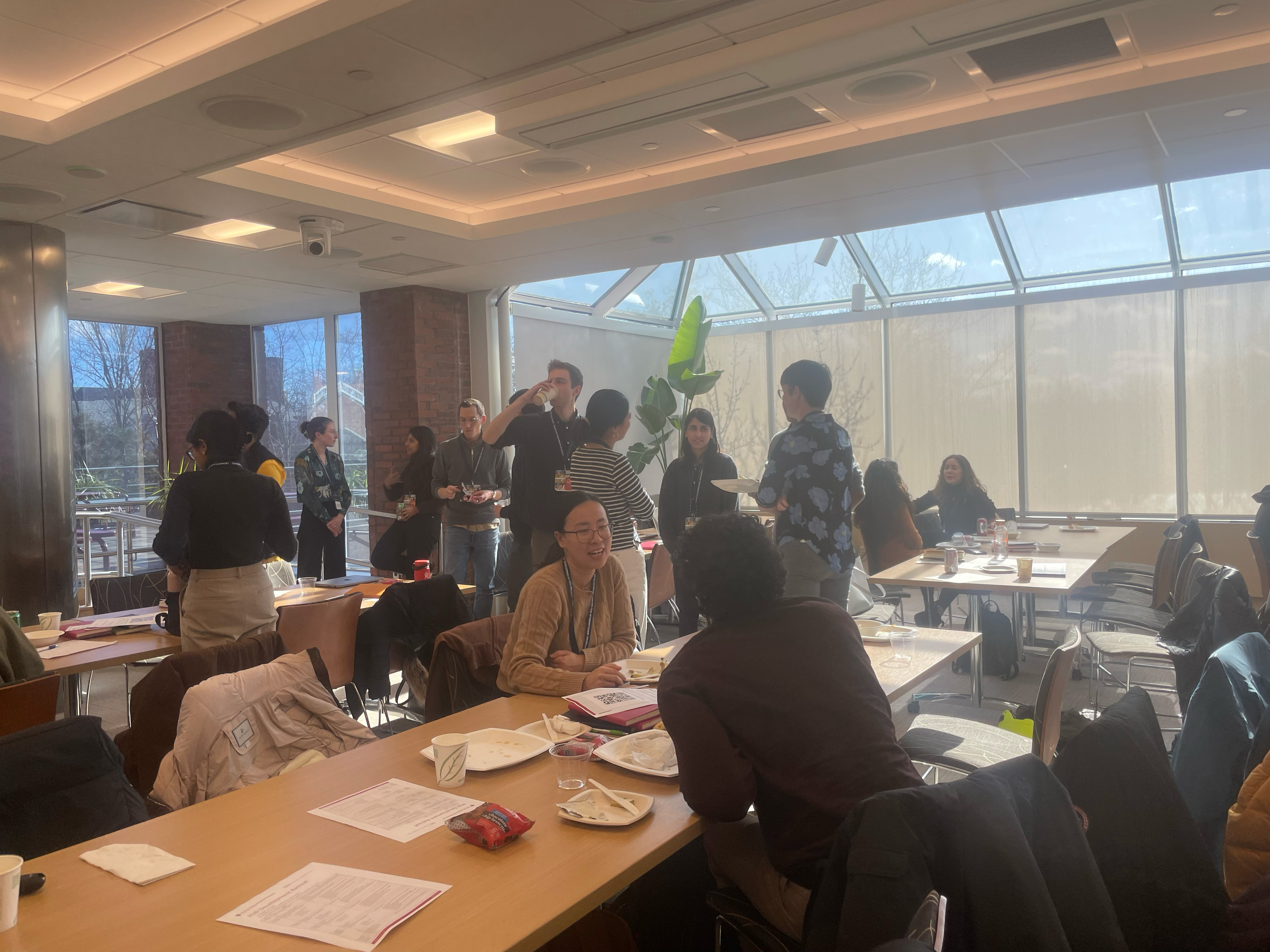Yale-EGC Sylff Fellows take part in Harvard Development Retreat, fostering early-career collaboration
Yale Economics PhD students presented research at a Harvard-Yale development PhD student retreat hosted by the Center for International Development (CID) at Harvard Kennedy School on February 16, 2024 – an event designed to enhance cross-institutional academic dialogue in development economics.

Yale Economics PhD students presented their research to Harvard PhD colleagues at a retreat hosted by Harvard Kennedy School on February 16, 2024, as part of a novel program to help graduate students in development economics connect with and get feedback on early-stage research from a community beyond Yale.
The Development Retreat featured four panels with short presentations by three to four graduate students per panel from the economics departments at Yale and Harvard as well as from Harvard Kennedy School (HKS). The retreat’s panels stimulated discussions that bridged theoretical models and practical solutions for development challenges. Between panels, the retreat offered time for mingling and informal discussion among students and faculty from both institutions.
Rohini Pande, the Henry J. Heinz II Professor of Economics and Director of EGC, said that the Development Retreat was intended to expand PhD students’ opportunities for growth as researchers. Pande noted, "this retreat hopes to create a community among PhD students and get feedback from a broader set of faculty at an earlier stage," underscoring the retreat's aim to foster connections and provide feedback to students well before they start presenting work on the job market.
All of the Yale students who attended the retreat are Sylff Fellows, with their participation made possible with support from the Sylff program at EGC. The Ryoichi Sasakawa Young Leaders Fellowship Fund (Sylff) fellowship at EGC supports outstanding Yale PhD students in Economics focused on international development and trade. The Global SYLFF Association is a collaborative initiative of The Nippon Foundation and the Tokyo Foundation for Policy Research.

Matthew Schwartzman, one of the five Yale Sylff PhD fellows attending, presented his research on the falling self-employment rate among low-skilled workers in service industries such as retail and construction and his analysis that this is driven by productivity improvement at firms in these same industries who employ these formerly self-employed workers.
Schwartzman highlighted the retreat's value in nurturing a collaborative research community. “The development retreat at Harvard was a great opportunity to present work, but an even better chance to meet new people and have engaging conversations with faculty and graduate students I hadn't met before,” Schwartzman said. “I discovered a lot of shared interests with researchers I met there, and I hope to stay in touch with many of them.”